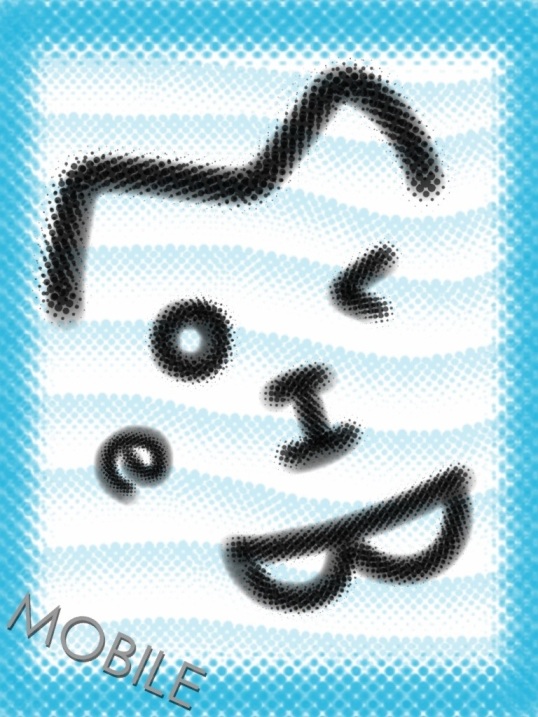A definition of mobile learning is given in Guidelines For Learning in a Mobile Environment by O’malley et al. (2003) is as follows:
Any sort of learning that happens when the learner is not at a fixed, predetermined location, or learning that happens when the learner takes advantage of the learning opportunities offered by mobile technologies.
This definition emphasizes the mobility of mobile learning, or m-learning rather than only focusing on the technological aspect of it as in Quinn’s definition which, as Sharples and others comment, “overlooks the wider context of learning as part of an incrasingly mobile lifestyle". Here’s Quinn’s definition:
It’s elearning through mobile computational devices: Palms, Windows CE machines, even your digital cell phone. (as cited in Sharples et al, 2009, pp. 234)
Sharples et al. (2009) suggest that exploration, conversation and collaborative knowledge building are the three fundamental processes that make up our experience in understanding the world and our knowledge of it (pp. 236). Exploration is making connections between experiences and concepts to form new knowledge. Conversation is learning that is connected between different contexts, time and space. Collaborative knowledge building is quite self-explanatory, that is, collaborating with other people to create new knowledge.
Sharples et al. argue that the technology of Wikipedia offers “a distributed system of meaning making that promotes collaborative knowledge building" (pp. 236). They further suggest that the technology of Wikipedia is not merely “a medium of inscription", but “an active participant in the process"(pp. 236). This is where I feel they have come up with a theory without making much effort to justify it. Apart from describing Wikipedia as “enabling certain forms of activity and constraining others”, they give no further elaboration on how “a medium of inscription" differs from “an active participant in the process"(pp. 236). Isn’t it true of all media that they enable certain forms of activity and constrain others? If the design and features of Wikipedia evolve, do not most of the other human inventions? Admittedly, the changes and modifications in technologies like Wikipedia may be much more sophisticated and subtle than many other human inventions, but how are they fundamentally different?
However, I do think this is an interesting theory, if one not backed with sufficient arguments. Perhaps what Sharples et al. have in mind is the way in which the designers and technicians behind technologies like Wikipedia interact with users and make changes based on such interaction. It is also more likely, I think, that people would regard sites like Facebook and Tumblr as two people with different personalities than think of their old refrigerator and the new freon-free one as two people with different opinions in environmental protection.
Sharples et al. go on to propose some interesting questions:
…who owns the products of conversational learning (online discussions, Wikipedia pages, etc.) and what are peoples’ rights to be free from continual engagement with educational technology…How can we distinguish between the intimacy of coming to know and the need to publicly record and register our attainments? (pp. 236-237)
On sites and Tumblr people are reposting and commenting to form new meanings on a daily basis and the posts often evolve into something beyond the intentions of the initial author(s). If these posts are to be collected for publication, it is difficult to determine who are entitled to the ownership of these posts. Even when a post is made by an individual or a self-organized group the present regulation of online ownership rights seem to be quite immature and needs modifying. There is a recent case in point. A group of overseas students who make short videos filming events and introducing places of interests in UK which they post on a collective Weibo account found that one of their videos is appropriated and aired without their permission or acknowledgment by a local television station in China. They posted about this appropriation on Weibo, where I learned of it. As I have not been following the incident, I wonder whether it is resolved now.
As for the questions about peoples’ right to be free from educational technology, I am not quite sure what is meant by this. The expression “intimacy of coming to know" is especially confusing to me. I have a vague understanding that the authors are worried about the records of peoples’ learning behaviours and achievements in educational technology. But the worries remain unclear and obscure to me as no specific examples are given. If anyone can elaborate on this point, it would be most helpful.
Sources:
O’Malley, C. & Vavoula, G. & Glew, J.P. & Taylor, J.& Sharples, M. & Lefrere, P. (2003). Guidelines for Learning in a Mobile Environment. MOBIlearn.
Retrieved from http://www.mobilearn.org/download/results/guidelines.pdf
Sharples, Mike & Aenedillo-Sánchez, Inmaculada & Milrad, Marcelo & Vavoula, Giasemi (2009). Mobile Learning. In Balacheff, N.; Ludvigsen, S.; Jong, T.; Lazonder, A.; Barnes, S. (Eds.) Technology-Enhanced Learning. Springer.
Retrieved from http://www.uio.no/studier/emner/matnat/ifi/INF5790/v12/undervisningsmateriale/articles/KAL_Legacy_Mobile_Learning_(001143v1).pdf


The authors give us a full explanation on the definition of “mobile learning". Yes in the article, much more grey area we cannot clearly know it, especially in the 3 exemplars. I don’t think it is fully utilisation of using mobile in learning. In my opinion, the mobile devices are only technology products but not aiding tools in language learning.
very critical thinking!! i am also confused by the phrase “intimacy of coming of know". plus, thanks for sharing all the good links with us!